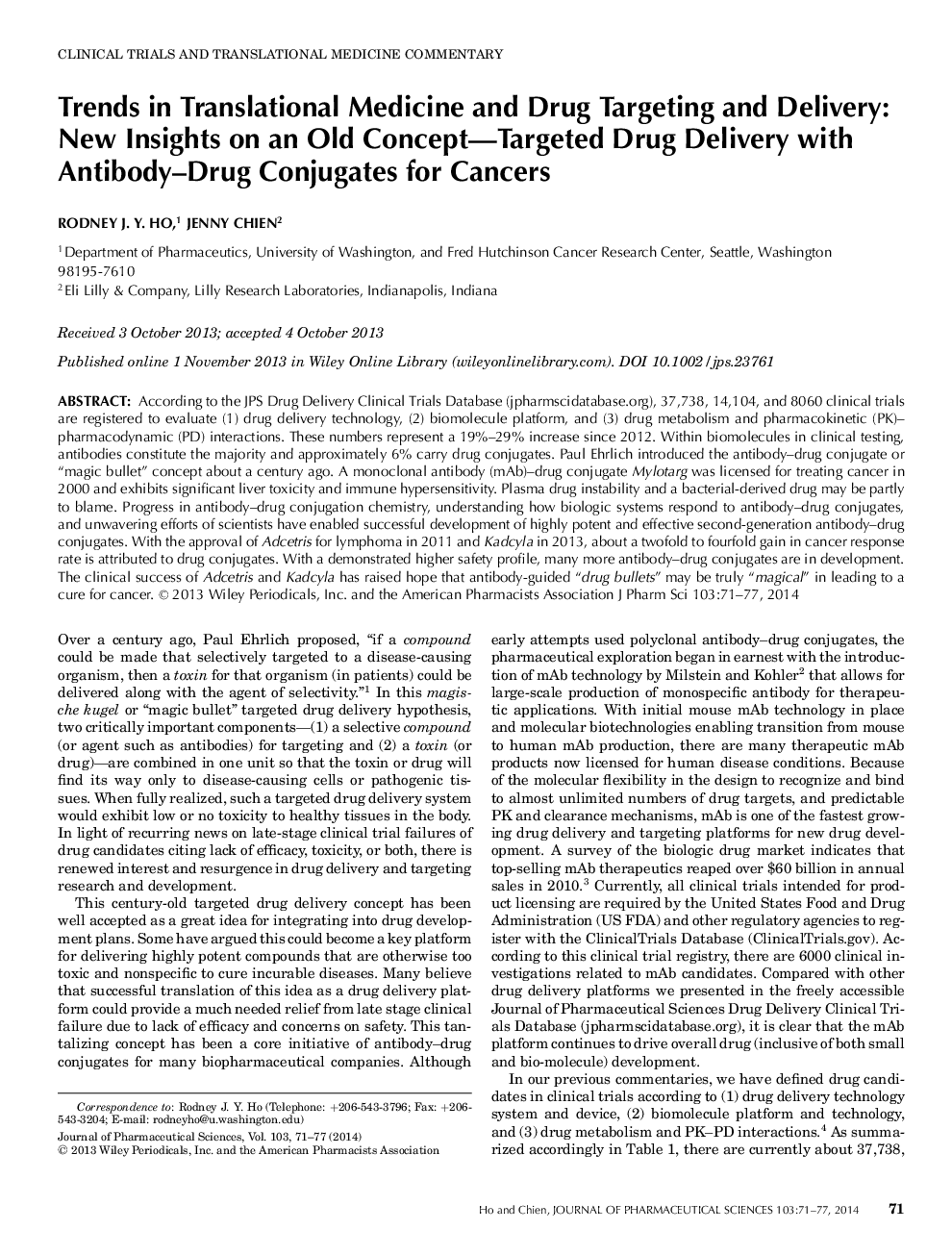| Article ID | Journal | Published Year | Pages | File Type |
|---|---|---|---|---|
| 10162631 | Journal of Pharmaceutical Sciences | 2014 | 7 Pages |
Abstract
According to the JPS Drug Delivery Clinical Trials Database (jpharmscidatabase.org), 37,738, 14,104, and 8060 clinical trials are registered to evaluate (1) drug delivery technology, (2) biomolecule platform, and (3) drug metabolism and pharmacokinetic (PK)-pharmacodynamic (PD) interactions. These numbers represent a 19%-29% increase since 2012. Within biomolecules in clinical testing, antibodies constitute the majority and approximately 6% carry drug conjugates. Paul Ehrlich introduced the antibody-drug conjugate or “magic bullet” concept about a century ago. A monoclonal antibody (mAb)-drug conjugate Mylotarg was licensed for treating cancer in 2000 and exhibits significant liver toxicity and immune hypersensitivity. Plasma drug instability and a bacterial-derived drug may be partly to blame. Progress in antibody-drug conjugation chemistry, understanding how biologic systems respond to antibody-drug conjugates, and unwavering efforts of scientists have enabled successful development of highly potent and effective second-generation antibody-drug conjugates. With the approval of Adcetris for lymphoma in 2011 and Kadcyla in 2013, about a twofold to fourfold gain in cancer response rate is attributed to drug conjugates. With a demonstrated higher safety profile, many more antibody-drug conjugates are in development. The clinical success of Adcetris and Kadcyla has raised hope that antibody-guided “drug bullets” may be truly “magical” in leading to a cure for cancer. © 2013 Wiley Periodicals, Inc. and the American Pharmacists Association J Pharm Sci 103:71-77, 2014
Related Topics
Health Sciences
Pharmacology, Toxicology and Pharmaceutical Science
Drug Discovery
Authors
J.Y. Ho, Jenny Chien,
